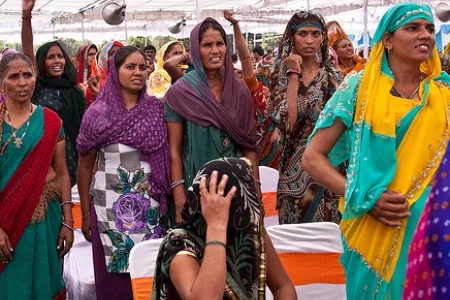Gender, fragility and the politics of statebuilding

Internationally supported statebuilding processes offer an opportunity to address engrained gender inequalities and develop a state that is accountable to women. However, international statebuilding support has so far been largely gender blind, with the result that such opportunities are often missed.
This report examines how the international community can better integrate gender into its statebuilding support. In particular, it focuses on how international actors can promote the participation of women in the core politics of statebuilding, i.e. the negotiation of the political settlement, democratisation processes, the development of civil society’s voice and engagement with informal power. It argues that international actors must develop a more political understanding of gender in fragile contexts, including how gender inequalities relate to broader power interests and patterns of fragility. It recommends that international actors promote women’s participation in the most critical moments of statebuilding, combine support for institutional reform with measures to address the structural barriers to access faced by women, and support a broad and independent women’s civil society that can engage with statebuilding processes. The report also calls on international actors to take greater risks in engaging with the informal institutions that play such a central role in perpetuating gender inequalities in fragile contexts.